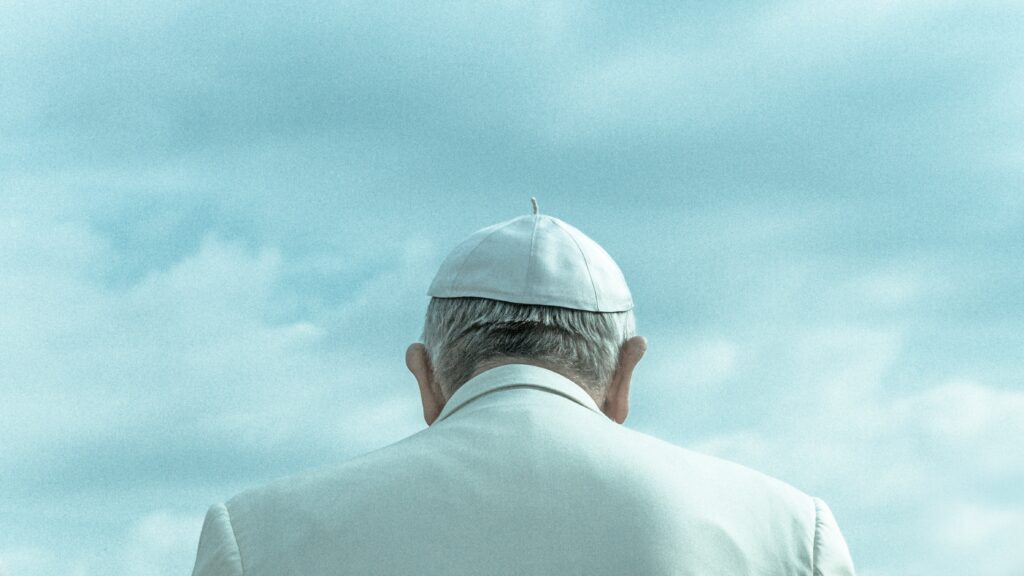Pope Francis died early Monday morning at the age of 88. Cardinal Kevin Farrell confirmed the news at 7:35 a.m. local time. He called it the Pope’s “return to the home of the Father.” The Pope had been battling severe pneumonia for weeks before his death.
Cardinal Farrell explained that Francis lived every moment to serve God and care for others. “He gave his life for the Church and the world’s most vulnerable,” Farrell said during the announcement.
A Life of Faith and Service
Jorge Mario Bergoglio, born in Buenos Aires, Argentina, became Pope Francis in 2013. He made history as the first Pope from the Americas and the first Jesuit to hold the title. From the start, he chose to lead with simplicity and humility.
Throughout his papacy, he urged Catholics to focus on love, mercy, and justice. He also brought attention to urgent issues like poverty, inequality, and climate change. Many admired his statement, “Who am I to judge?” when discussing LGBTQ+ individuals. It reflected his broader push for inclusion and compassion within the Church.
Furthermore, he supported peaceful dialogue between different religions and often spoke out against violence and division.
Health Struggles Before His Death
In late February, doctors admitted Pope Francis to the Gemelli Hospital in Rome. They diagnosed him with severe double pneumonia. He stayed under care for five weeks. After intense treatment, he returned to the Vatican in late March.
Though he resumed light duties, close aides noticed his energy fading. Still, the Pope chose to keep working. A Vatican official shared, “He insisted on continuing his mission, no matter how tired he felt.”
Sadly, his condition worsened in recent days. Despite medical efforts and spiritual support, he died peacefully in his private residence.
Tributes from Around the World
The news sparked heartfelt reactions from world leaders and faith groups. U.S. President Joe Biden, a practicing Catholic, said he felt “deeply saddened” by the loss. He also called Francis “a guiding moral force during troubled times.”
Meanwhile, United Nations Secretary-General António Guterres described the Pope’s message of peace as timeless. “His call for unity will echo through generations,” Guterres added.
The Vatican is now preparing a public farewell. Visitors will be able to pay their respects at St. Peter’s Basilica. A full funeral Mass will follow later this week. Leaders from many countries are expected to attend.
Legacy of Action and Hope
Pope Francis never lived in the luxurious papal palace. Instead, he chose a modest guesthouse. He also spent time with the poor, the sick, and prisoners. On Holy Thursday, he famously washed the feet of refugees—something no Pope had done before.
In 2015, he published Laudato Si’, an encyclical that urged people to care for the planet. Environmentalists and scientists praised it for its clarity and call to action. He argued that protecting the Earth was a moral issue, not just a political one.
Additionally, he made major reforms in Church finances. He pushed for transparency, investigated corruption, and created a commission to protect minors from abuse. Though some resisted these changes, Francis pressed on with courage.
What Happens Next
Following tradition, the Vatican will observe a mourning period. Soon, the College of Cardinals will meet to begin the process of choosing a new Pope. This conclave will take place in the Sistine Chapel and may last several days.
Until then, Cardinal Giovanni Battista Re will lead Church affairs. The Church will continue its daily functions as preparations move forward.
Remembering a Humble Shepherd
Pope Francis leaves behind a legacy built on kindness, courage, and humility. He showed the world that faith is not only about doctrine—it’s also about love and action. His words, “Go and serve,” inspired millions to help others and live with purpose.
Even as the Church begins a new chapter, many will remember Francis as a Pope who walked with the people, spoke truth to power, and lived by example.


